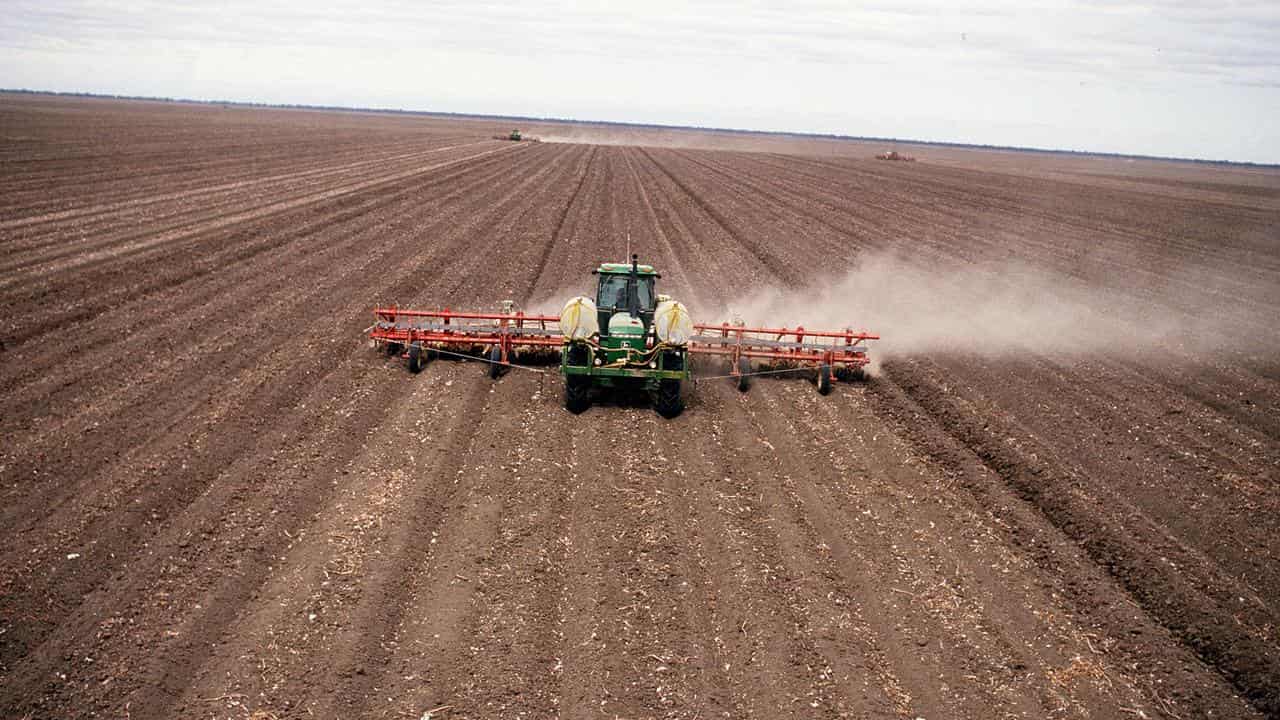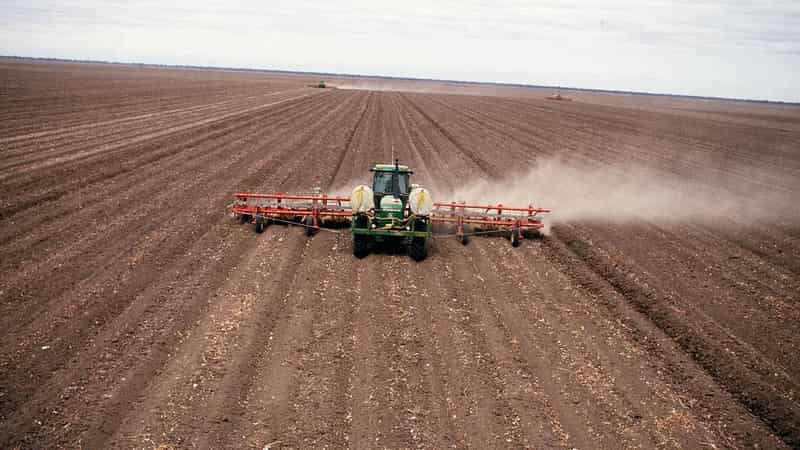
Environmentalists have slammed plans by the NT government to expand cotton production, claiming it paves the way for destructive land clearing.
The Northern Territory government on Tuesday revealed it wants to increase the amount of land used for broadacre cropping which would include cotton, to 100,000 hectares.
Growing dryland cotton has been identified by the NT as a high-value broadacre cropping option with the first commercial crop of about 200ha grown during the 2018-19 season.
Dryland cotton production in the territory increased in 2021/22 to almost 8000ha.
The targets have been laid out in the NT's agribusiness 2030 strategy launched on Tuesday, and would see agriculture and aquaculture grow from $1.3 billion in 2021 to $2 billion by 2030.
The strategy also outlines challenges facing the sector as opportunities.
They include changing existing pastoral land tenure to include cropping and horticultural activities, and reducing time frames for land clearing and water licensing.
The Environment Centre NT has condemned the strategy and said any move to increase cotton production will be environmentally destructive.
“The NT government ... have a long-term plan to actively support a huge expansion of large-scale cotton production which will fuel the biodiversity crisis while our ecosystems are literally collapsing,” the centre's executive director Kirsty Howey said.
The strategy also outlines the governments plan to respond to biosecurity and climate change threats.
“The agribusiness strategy will support industry to achieve $2 billion in farm gate output by 2030,” said head of NT Farmers Paul Burke who backs the plan.
“Industry welcomes the development of this strategy and government’s commitment to the agricultural sector,” he said.
Launching the strategy, the territory's minister for agribusiness and fisheries Paul Kirby said agribusiness is worth big dollars to the NT.
“There is incredible potential for sustainable agribusiness development in the Northern Territory and the launch of the Agribusiness 2030 Strategy will play an integral role in galvanising efforts to unlock that.”
The strategy followed a series of industry forums and consultation across the NT in 2021 and 2022.
According to official data, cotton made up two per cent of agriculture's gross value production in 2021 to 2022.









